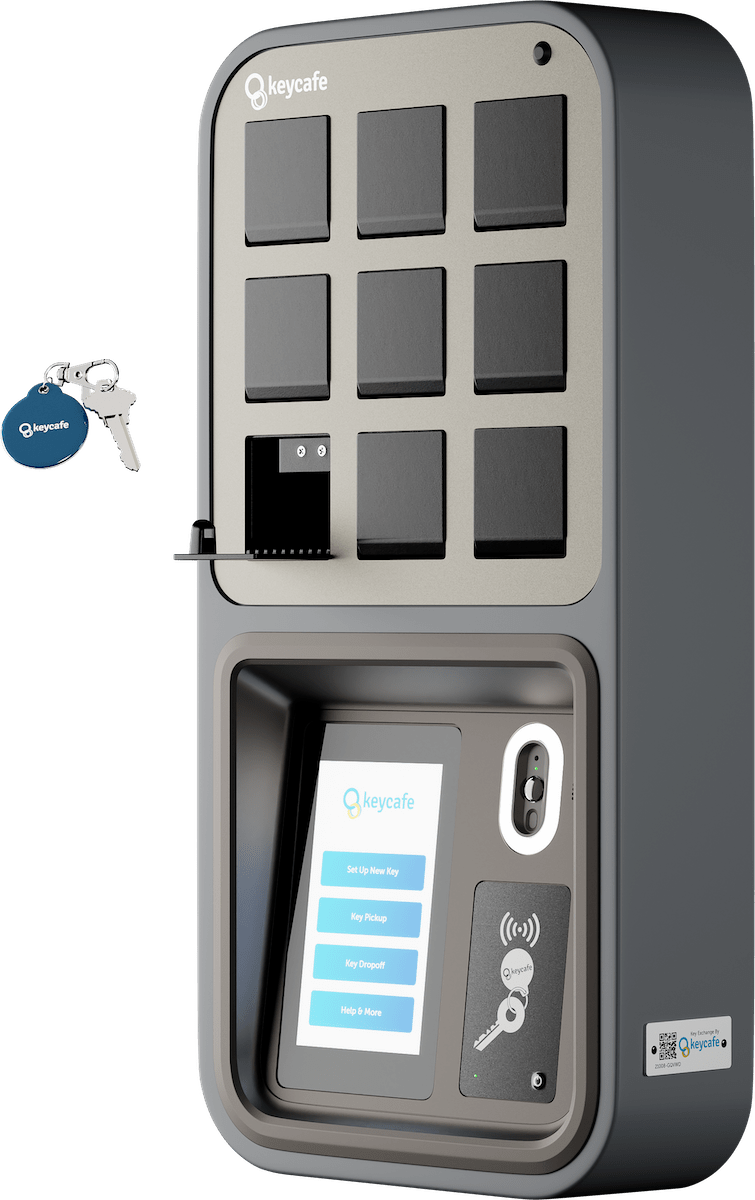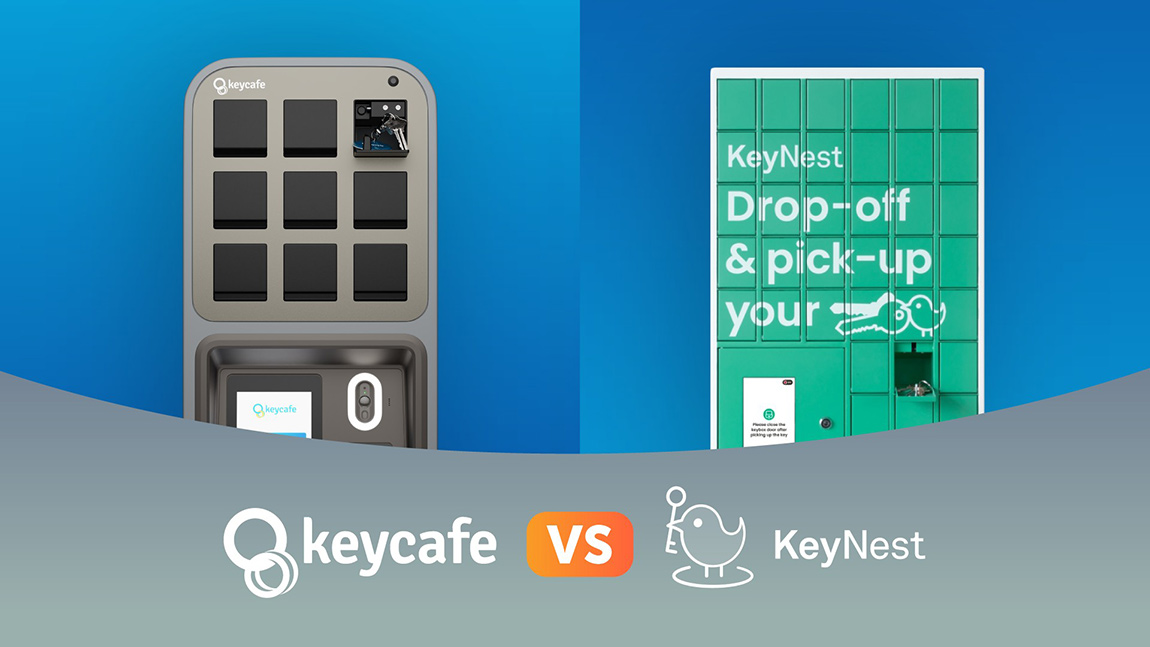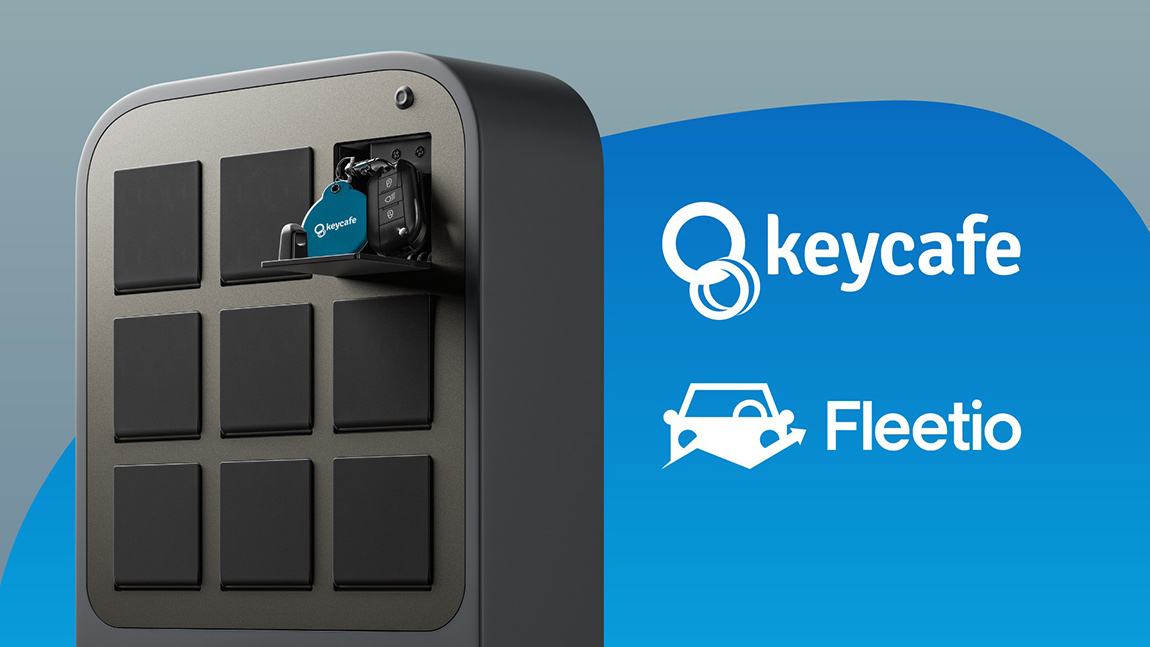In recent years, the world has seen a remarkable shift in the way people work and live. The rise of the digital nomad lifestyle, defined by individuals who leverage technology to work remotely and live nomadically, has not only redefined the boundaries of traditional workplaces but has also brought about significant shifts in the rental market. As more and more people embrace the freedom to work from anywhere, there's a growing demand for long-term accommodations that cater to this new breed of modern travelers. These aren't just tourists looking for a weekend getaway; they are professionals, freelancers, and entrepreneurs seeking homes away from home, often for extended periods.
This shift in lifestyle presents both challenges and opportunities for property managers and hosts. How can they ensure seamless experiences for their guests, especially when it comes to something as basic as key management?
Enter the world of smart key management systems, a game-changer for long-term rentals. In this article, we'll delve deep into how the digital nomad trend is reshaping the rental market, explore the increasing demand for long-term Airbnb accommodations, and uncover the important role that smart key management systems play in helping hassle-free stays for these modern travelers. Join us as we navigate this new era of rental key management, where convenience, security, and innovation converge.
The Digital Nomad Trend: Reshaping the Rental Market
Understanding the Digital Nomad
The term "digital nomad" has become increasingly popular, but what exactly does it mean? At its core, a digital nomad is an individual who uses the power of technology to work remotely. This lifestyle is defined by a blend of work and travel, where one's office could be a beachfront cafe in Bali one week and a vibrant co-working space in Berlin the next.
Several defining features of digital nomads include:
- Flexibility: They have the freedom to choose where and when they work.
- Adaptability: They're comfortable with change and can quickly adjust to new environments.
- Tech-savviness: They rely heavily on digital tools and platforms to perform their tasks and stay connected.
But why is this trend gaining such momentum? There are a few driving factors:
- Remote Work: The rise of remote work opportunities, especially post-pandemic, has made it easier for individuals to work from anywhere. Companies are becoming more open to remote work arrangements, recognizing the benefits of a happier and more flexible workforce.
- Desire for Experiences: The modern individual, particularly millennials and Gen Z, values experiences over possessions. The allure of exploring new cultures, cuisines, and landscapes is compelling more people to adopt a nomadic lifestyle.
- Global Connectivity: With advancements in technology and the ubiquity of the internet, staying connected from any corner of the world has never been easier. This global connectivity ensures that digital nomads can work efficiently, irrespective of their location.
Shift from Short-term to Long-term Rentals
As the digital nomad trend flourishes, there's a noticeable shift in the rental market. While short-term vacation rentals remain popular, there's a growing demand for longer-term accommodations. Digital nomads aren't just passing through; they usually stay for several months to really get to know the area.
This shift presents several benefits for both hosts and guests:
For Hosts:
- Stable Income: Longer bookings mean a more consistent and predictable revenue stream.
- Reduced Turnover: Fewer check-ins and check-outs translate to less wear and tear on the property and reduced administrative tasks.
- Building Relationships: Extended stays allow hosts to foster stronger relationships with their guests, leading to potential repeat bookings and positive reviews.
For The Digital Nomads:
- Cost-Effective: Longer stays often come with discounted rates, making it more economical.
- Home-Like Experience: Staying in one place for an extended period allows guests to settle in, creating a more comfortable and home-like environment.
- Deepened Cultural Immersion: Longer stays provide an opportunity to truly learn about the local culture, forming deeper connections with the community and surroundings.
Challenges in Managing Access for Digital Nomads
While platforms like Airbnb have made it easier for digital nomads to find suitable accommodations, they also bring to light some challenges like giving access to the rental properties.
- Extra Cost: Getting a digital nomad checked in used to require face-to-face interactions, which can be expensive for hosts and can result in bad reviews. With guests coming from different time zones or facing travel delays, this can be a logistical nightmare.
- Stressful Lockouts: Dealing with emergency situations, such as a guest locking themselves out, can be time consuming and expensive for property managers.
The Revolution of Smart Key Management Systems
Streamlining Check-Ins with Digital Solutions
Handing over keys in person, while personal, often comes with its set of challenges. Smart key management systems are making property management much less complicated.
- 24/7 Self-Check-In: One of the standout features of digital key solutions is the ability to offer 24/7 self-check-in. No matter when a guest arrives, they can access their accommodation without any hassle.
- Automation: With automated systems in place, there's no room for miscommunication, as guests receive clear instructions on key access, ensuring a smooth check-in experience.
Enhancing Security with Key Control Systems
Security is paramount, especially when it comes to accommodations. Smart key management systems elevate the security standards in several ways:
- Real-Time Monitoring of Key Pickups and Drop Offs: With digital solutions, every key transaction is logged and monitored in real-time. Hosts can track when a guest picks up or drops off a key, adding an extra layer of security and transparency to the process.
- Ensuring Authorized Access to Rentals: Requiring authentication prior to accessing a key, key management systems ensure that only authorized individuals have access to the property.
- Compliance with Rental Platform Requirements: Platforms like Airbnb have specific listing requirements to ensure the safety and convenience of both hosts and guests. For instance, Airbnb's Business Travel listing requirements emphasize secure and streamlined check-in processes. Smart key management systems align perfectly with such requirements, making listings more appealing to potential guests.
Key Storage Solutions: Beyond Just Storing Keys
Modern key management systems offer much more than just a place to store keys:
- Integration Capabilities with Platforms: Advanced key storage solutions can integrate seamlessly with rental platforms. This means that as soon as a booking is confirmed, access can be automatically created and communicated to the guest, streamlining the entire process.
- Modular and Expandable Systems: As hosts expand their portfolio of properties, their key management needs grow too. Modern systems are modular and can be expanded to cater to varying needs, from a single property to an entire apartment complex.
- Real-Time Key Statuses and Alerts: Property managers can benefit immensely from real-time key statuses. Knowing which keys are out and which are in, and receiving alerts for unusual activities or late check-outs, ensures that managers are always in the loop and can act promptly when needed.
The Role of Key Management Systems in the Digital Nomad Era
Automating and Integrating for Efficiency
In the fast-paced world of digital nomads, efficiency is key. They're always on the move, often juggling work commitments with travel plans, and they expect the services they use to keep up. This is where advanced key management systems come into play:
- Integrations with Platforms like Airbnb: One of the significant advantages of modern key management systems is their ability to integrate seamlessly with popular rental platforms like Airbnb. Such integrations mean that the moment a booking is confirmed, the system can automatically generate access for the guest, send them instructions, and manage the entire key exchange process without any manual intervention. This not only streamlines operations but also enhances the guest experience.
- Robust API Capabilities: Beyond just integrations with rental platforms, the robust API capabilities of contemporary key management systems allow for integration with any business’ existing booking software.
Empowering Property Managers and Hosts
The role of property managers and hosts has evolved with the rise of the digital nomad trend. They're no longer just providers of accommodation; they're facilitators of a lifestyle. Advanced key management systems empower them in several ways:
- Instant Booking Management for Last-Minute Changes: With smart key management systems, property managers can instantly manage these bookings, ensuring that even last-minute guests have a seamless check-in experience.
- Granting and Revoking Access in Real-Time: Whether it’s extending a stay, granting access to a cleaner, or revoking access due to a canceled booking, modern systems allow property managers to make these changes in real-time, from anywhere in the world.
- Managing All Keys from a Single Account: Advanced systems provide a centralized dashboard, allowing managers to oversee all their properties and keys from a single account. This not only enhances efficiency but also reduces the chances of errors.
Embracing Smart Key Management for Digital Nomads
The future of long-term rentals looks promising, driven by the ever-growing community of digital nomads and the increasing demand for flexible, home-like accommodations. As this demand grows, so does the need for innovative solutions that cater to the unique challenges of this market. Key storage solutions are no longer just about storing keys; they're about integration, automation, security, and above all, enhancing the guest and host experience.







